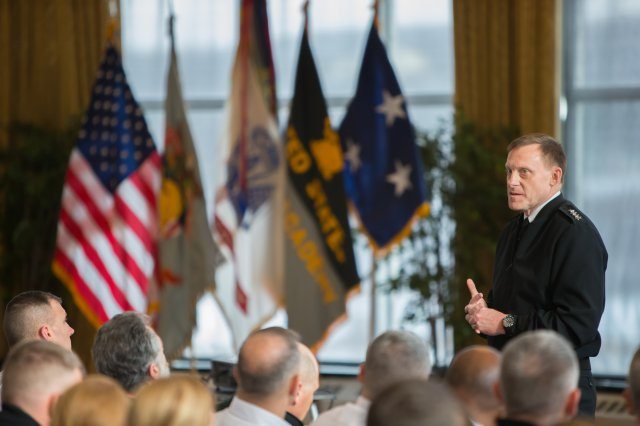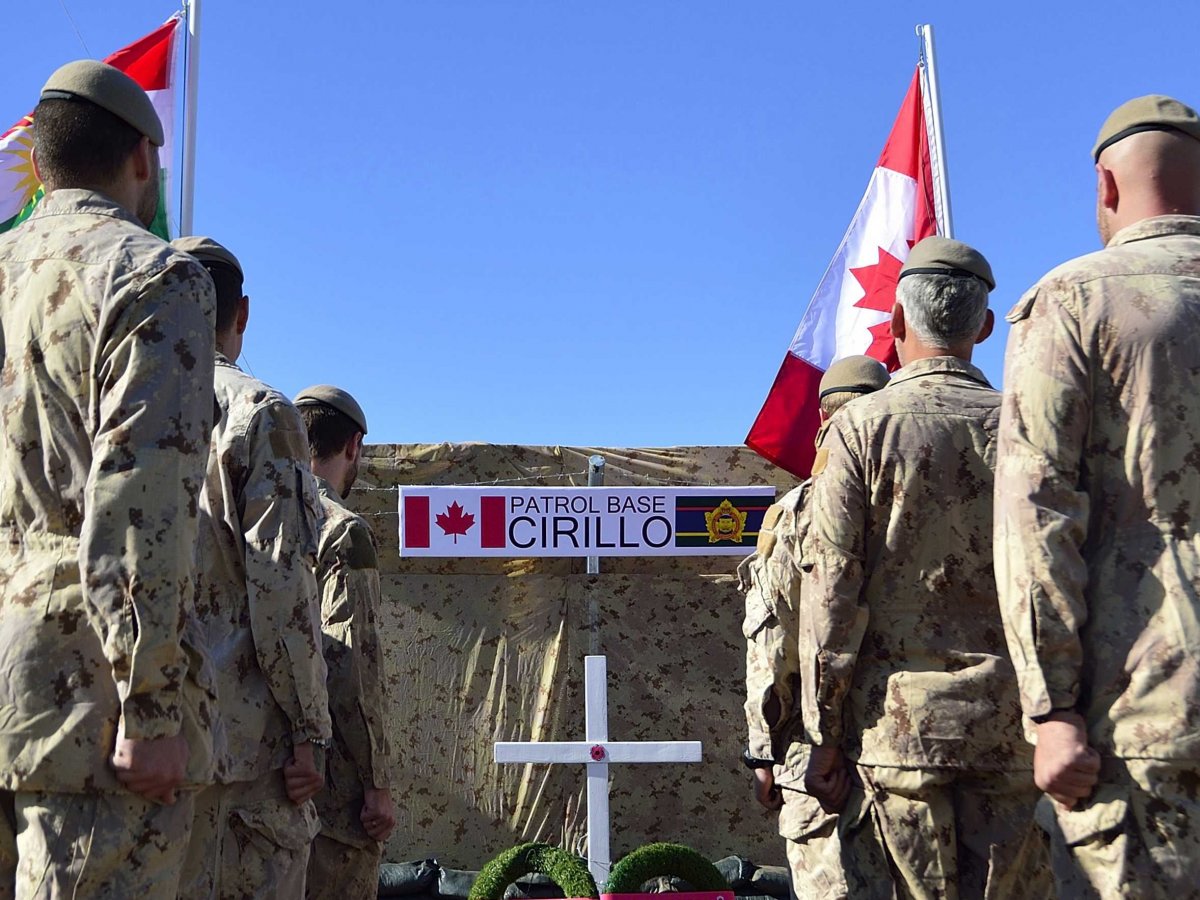Navy Adm. Michael S. Rogers, commander of the U.S. Cyber Command, or USCYBERCOM, and director of the National Security Agency, addressed staff and faculty during the first Leadership Professional Development series event of 2015, Jan. 9.
During his remarks, Rogers thanked the audience for their commitment to the Army and leadership. “You are building the foundation of the United States Army’s leadership of the future… you are helping to mold the men and women, who will one day be standing up here talking to an audience like this,” he said.
“That takes a lot of focus, commitment and hard work,” Rogers said.
Rogers discussed how the Army is helping to contribute to the demanding cyberspace that the nation operates in. “The United States Army should feel incredibly proud about its role in Cyber,” he said.
Specifically, Rogers explained the Army’s ability to recognize the importance of cyber and the hard work required to be successful, its work to development of a clear vision for the service, its desire to commit resources, and its ability to meet its obligations in the joint world.
“There are few things in our professional lives that we get to start from the ground up, and we can truly say we are building this thing and creating the future… cyber is one of those of those things,” he said.
Rogers said that by the end of fiscal year 2016, USCYBERCOM will have created a dedicated cyber mission force made up of approximately 6,200 people, formed into 133 teams.
These teams will have three missions: defending the Department of Defense, or DoD, information network; providing support to Combatant Commanders; and, when directed by the president or the defense secretary, applying DoD capability to defend critical U.S. infrastructure against cyber attacks.
“Cyber is not just about technology… cyber is a domain that is interconnected, interacts and interrelates with every other domain,” Rogers said.
The graduating Class of 2015 will mark the first class of USMA graduates to branch directly into the U.S Army Cyber Command, a service element to USCYBERCOM.
Fifteen cadets received the cyber branch insignia during the branch night ceremony last November. Several members of the Class of 2014 who commissioned as military intelligence or Signal Corps second lieutenants were also slated to transfer into cyber units.
The next lecture event wil feature Gen. Joseph L. Votel, commander of U.S. Special Operations Command.











